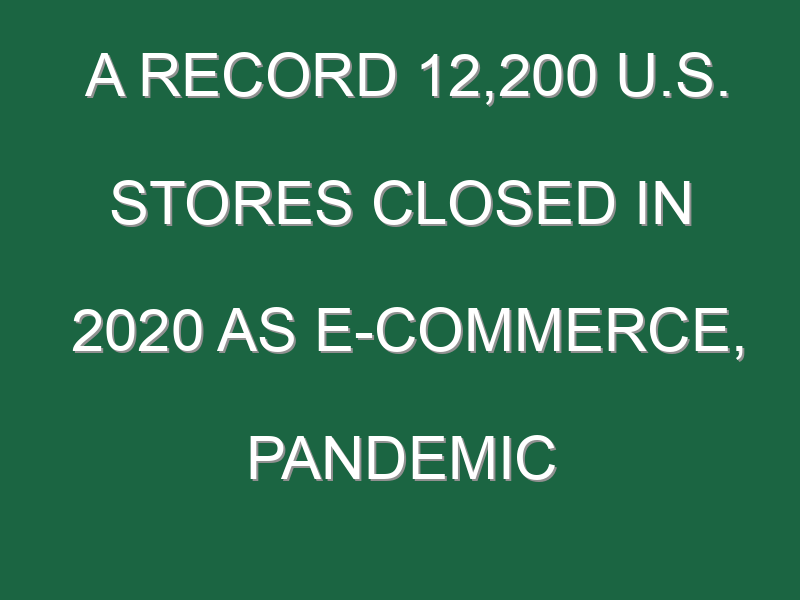When it comes to store closings, 2020 was a year for the record books.
Ravaged by a pandemic that shuttered stores for weeks in the spring—driving more spending online—retailers big and small closed 12,200 stores in the U.S. last year, according to a compilation released on Wednesday by commercial real estate firm CoStar Group. In all, that amounted to 159 million square feet of retail space. In 2019, the tally was 10,000 stores.
Some of the bold-face retail names to have closed stores in big numbers last year include J.C. Penney, which filed for bankruptcy in the spring and emerged with a fraction of its store count of just a few years ago, GameStop, The Gap, and Macy’s. Many of the closings came from retailers that shut down altogether last year, such as Pier 1 Imports and its 950 stores.
The pain was concentrated among mall-based retailers, which had been struggling long before COVID-19 made its appearance. CoStar estimated that one-third of the store closings were by department stores, clothing chains, or other mall-oriented companies, which represent only about 8% of total retail revenue.
Early in the pandemic, some big retailers like Walmart, Costco, and Target, as well as the drugstore chains CVS pharmacy and Walgreens were deemed essential by authorities and allowed to stay open, giving them an edge over the likes of Macy’s, Kohl’s, Nordstrom and Abercrombie & Fitch.
While those companies have so far weathered the storm, the pressure pushed many wobbly retailers over the edge, and led to record number of bankruptcies in 2020. On Tuesday, S&P Global Market Intelligence said U.S. corporate bankruptcies reach a high last year of 603 companies, including 125 consumer goods and retailers. That included Penney, J.Crew, and the parent companies of Ann Taylor and Men’s Warehouse among others, adding to the carnage.
But even successful companies have put on the breaks on store fleet expansion plans. Old Navy and Ulta Beauty, for example, are both recovering well from the shutdowns and still plan to open hundreds more stores in the coming year but are now giving themselves more time to do so.
More must-read retail coverage from Fortune:
- 14 of the biggest bankruptcies of 2020—and who might be next in 2021
- The pandemic cramped Rent the Runway’s style—but here’s how the company is fashioning a comeback in 2021
- From pet adoptions to D.I.Y. home improvement to sweatpants: 10 COVID-fueled consumer trends that will endure
- 21 books to look forward to in 2021
- How Peloton’s $420 million Precor deal positions the company for post-pandemic life




